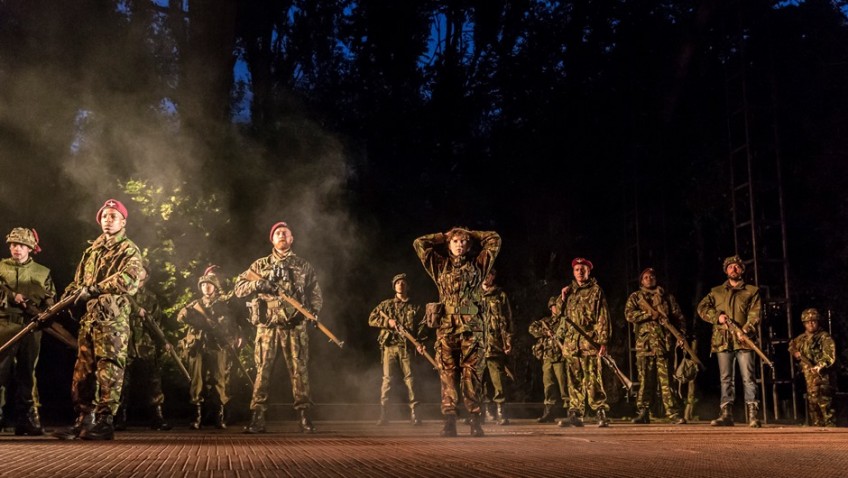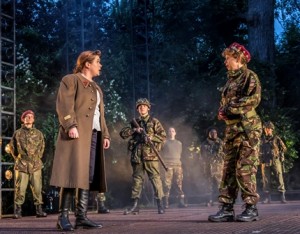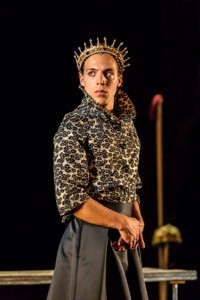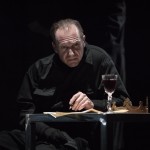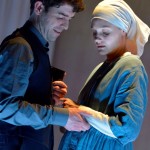Robert Tanitch reviews Henry V at Open Air Theatre, Regent’s Park, London NW1
Shakespeare’s Henry V can be acted as either patriotic jingoism or as anti-war propaganda. The latter interpretation is more popular these days.
Henry, the man, can be acted as either hero or war criminal. It all depends which bits of the text are cut.
What happens when Henry is played by a woman? The answer, in this instance, is you don’t believe it for one moment.
I wouldn’t want this Henry V to be anybody’s first Shakespeare or indeed anybody’s first Henry V.
There are not enough roles in the theatre for women. One of the ways to address the problem, in Shakespeare at any rate, is to have woman play male roles and turn them into female roles.
Robert Hastie’s modern production begins with the Chorus (Charlotte Cornwell) surrounded by the whole cast. There is nothing new about women playing the Chorus
She looks around, rejects the men and chooses Michelle Terry to play Henry V. Now that is new. (Actually there was an all-female production in World War 1 headed by 15-year-old Fabia Drake.)
Michelle Terry remains Michelle Terry playing Henry V. She never is Henry V. It is absurd the way the other characters refer to her as “he” and “the king” when she is so obviously a woman.
The French Princess is played by Ben Wiggins with great dignity. Wiggins is so much taller than Terry; and Terry has to stand on tiptoe to kiss him. The courting loses its comedy and its brutal edge. The scene should have been radically rethought to match the casting.
Mountjoy is played by a woman and it is she who delivers the tennis balls to Henry; an even ruder insult in the present circumstances.
Captain Fluellen, Captain Jamy, Captain Gower and Captain McMorris are all played by women. The result is that when they are all talking about the disciplines of war they sound like gossiping women.
The Battle of Agincourt has been choreographed to a dramatic drumming and dramatic lighting; but th e choreography is not good enough and goes on far too long. Much more effective is the shooting of Bardulph by a firing squad.
e choreography is not good enough and goes on far too long. Much more effective is the shooting of Bardulph by a firing squad.
The most successful and still very pertinent performance is by Jack McMullen as Williams, the soldier, who reckons, in any future inquiry into the invasion, that the king must carry a heavy responsibility for the carnage on the battlefield.
To learn more about Robert Tanitch and his reviews, click here to go to his website
Images credit Johan Persson.

